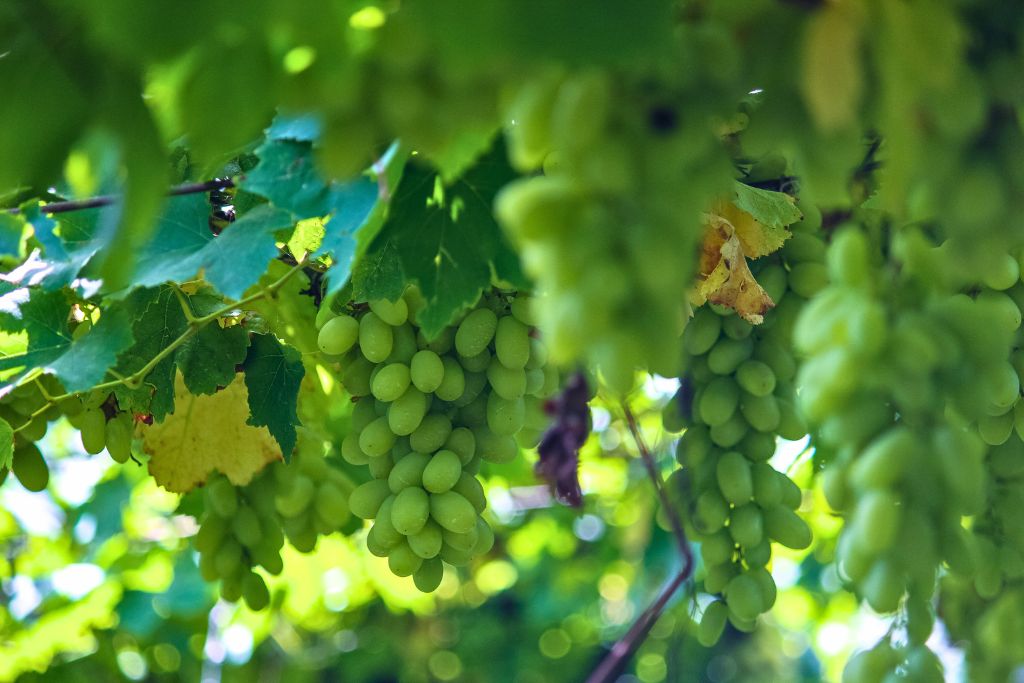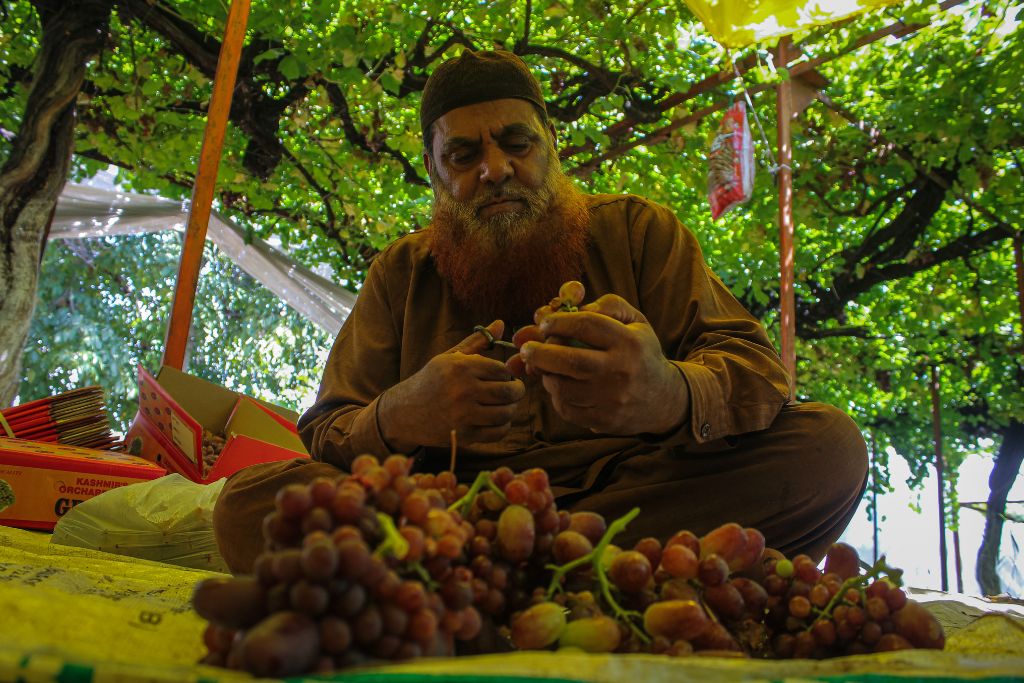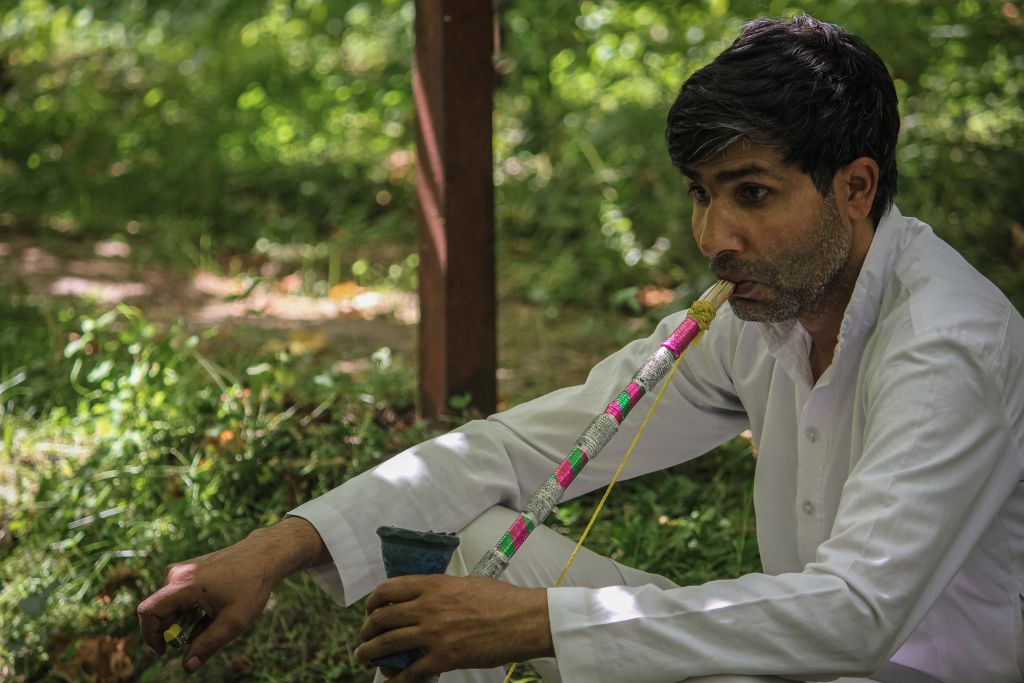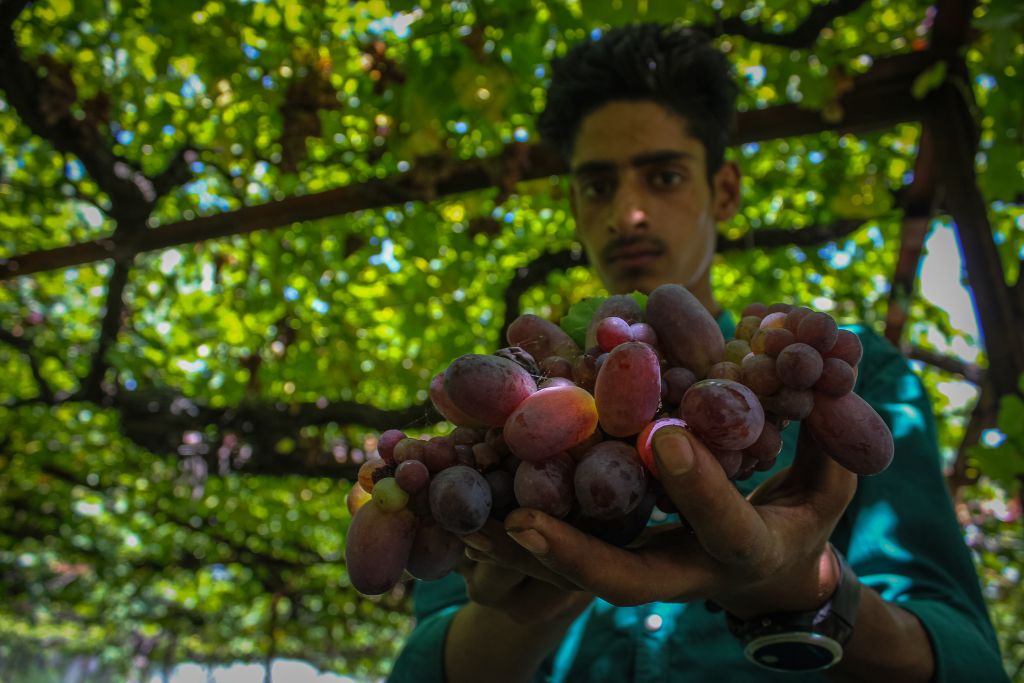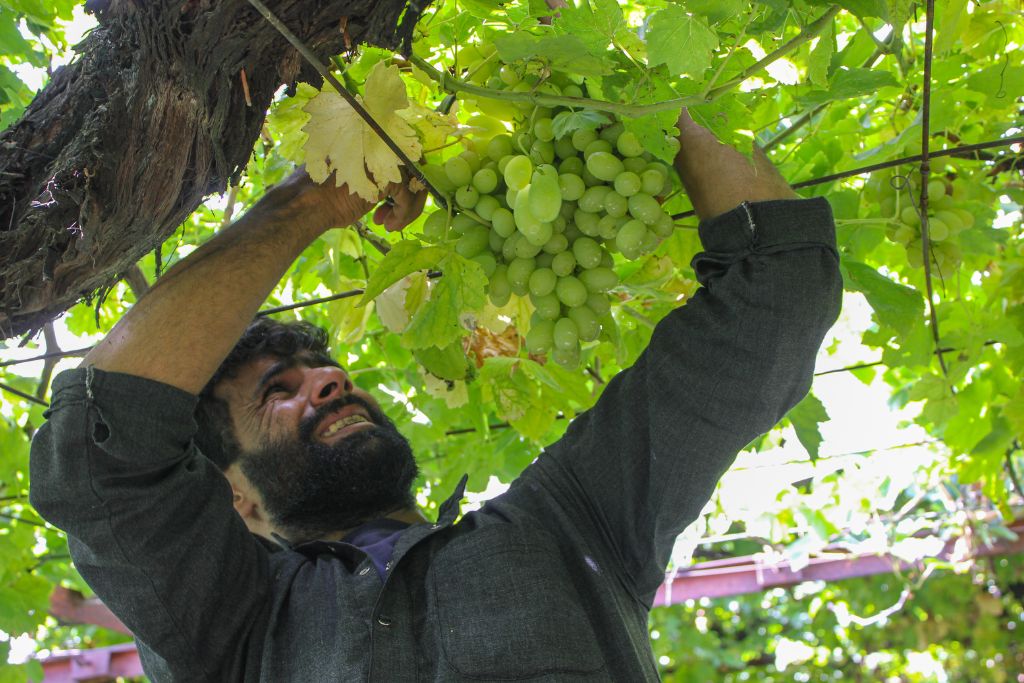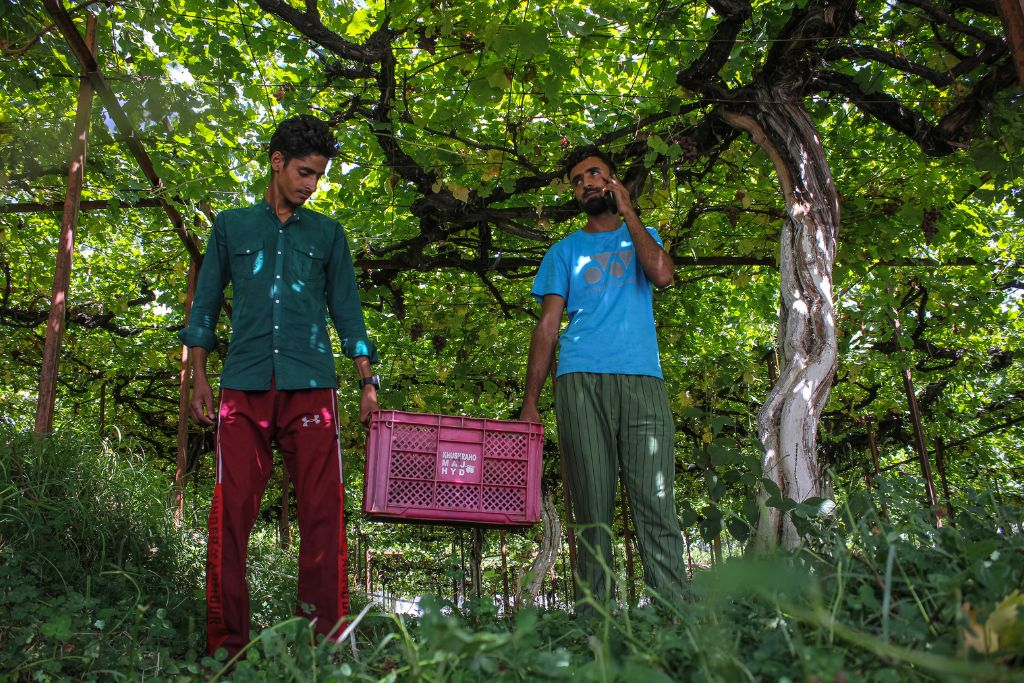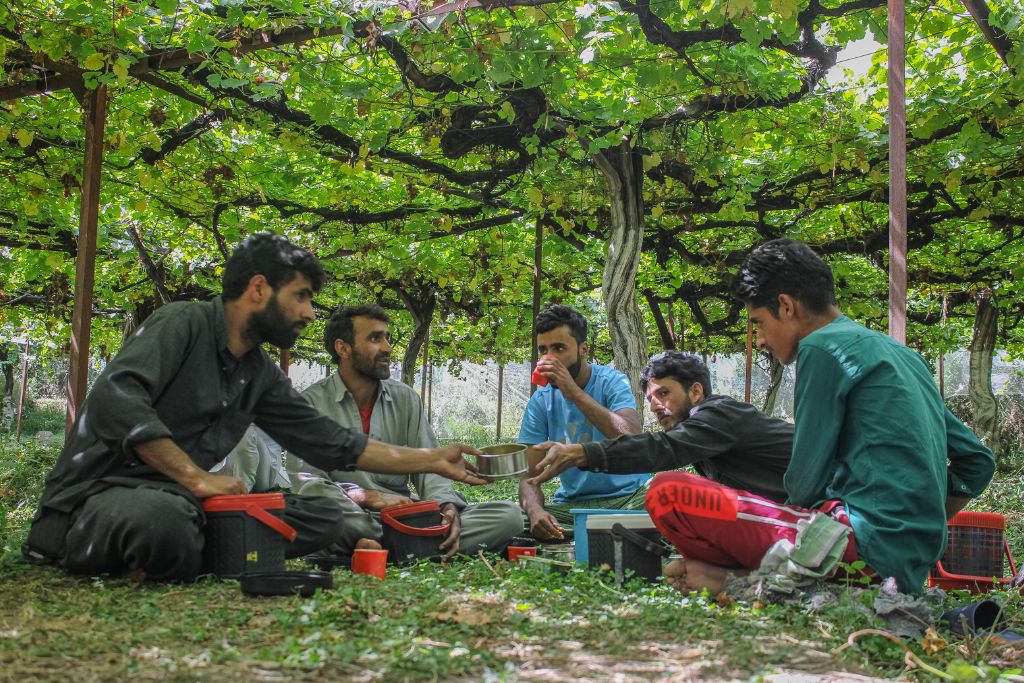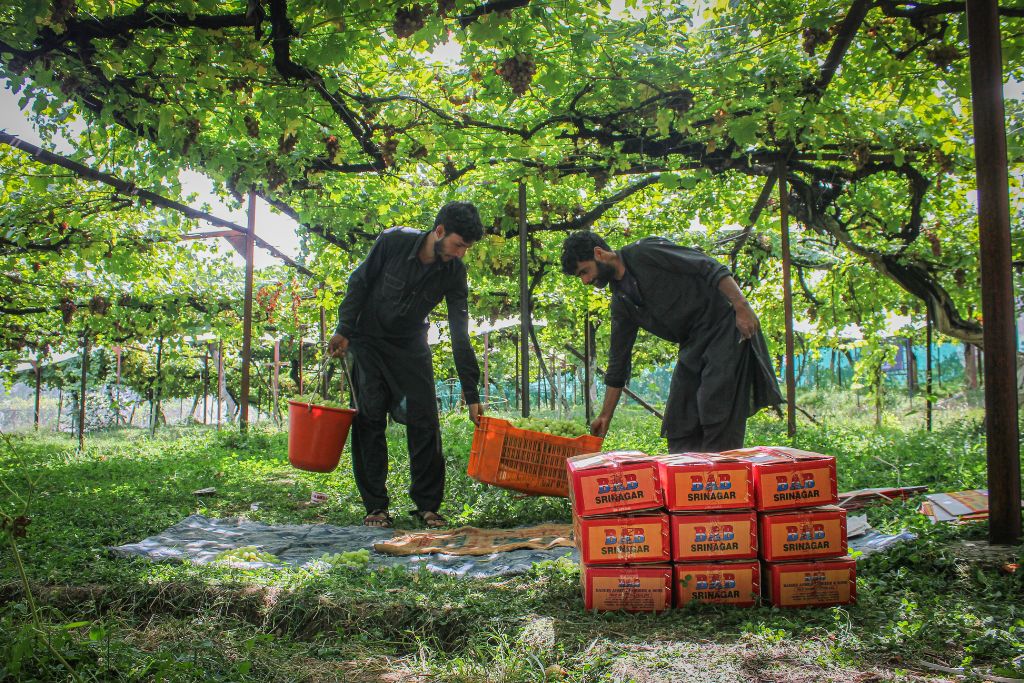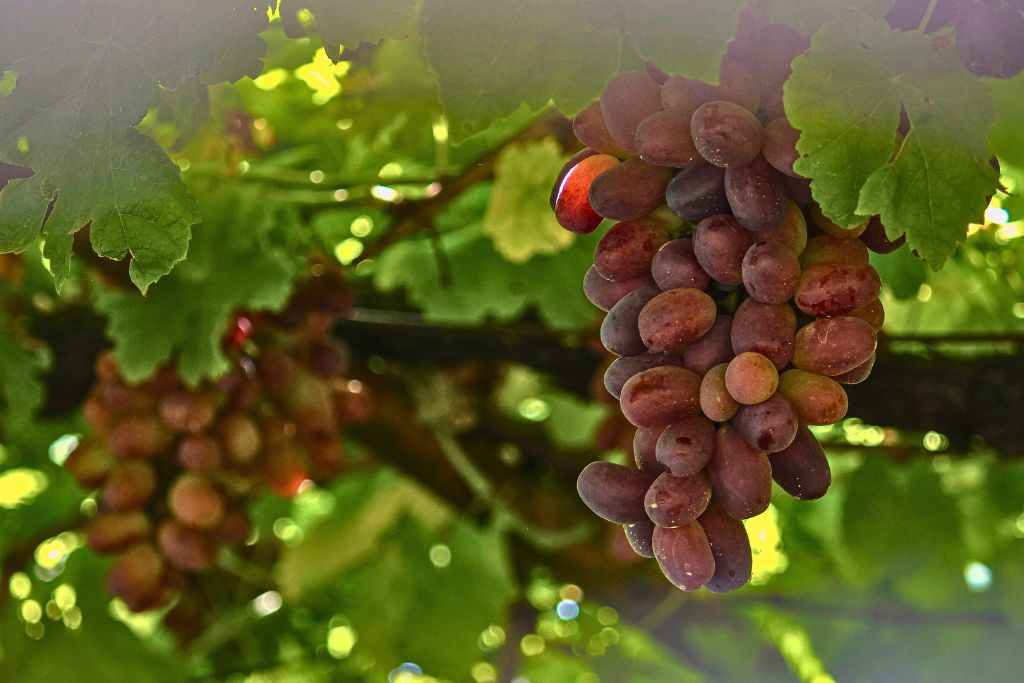
What a ‘grape’ village!
Over 600 years ago, Sufi saint Sheikh Noor-Ud-Din Wali praised Repora in Kashmir's Ganderbal district as 'Dachi Repora, Nazar chay cxopoor,' which means, "Repora grapes, your gaze extends everywhere." Today, Repora's vineyards are renowned for top-quality organic grapes, rivalling Italy.
In the beautiful Kashmir Valley, Repora’s 60-hectare area is the grape industry’s core. Repora’s southern exposure, well-irrigated lands, and abundant sunshine make it an ideal place in Kashmir for growing grape varieties known for their exceptional quality, quantity, and size, ranking among the world’s finest grapes.
“This golden blessing, planted by Saint Mir Syed Shah Sadiq Qalandar, is a priceless gem,” says Abdul Hamid as he delicately plucks the grapes. “Maharaja Hari Singh built a bungalow here for grape cultivation, which is now managed by the Horticulture Department,” he adds.
Also Read: Sangli’s grape farmers are ‘raisin’ the bar
A local farmer, Javid Hafizi enjoys hookah during a break. “Within our vineyards, Iranian-imported grape varieties like Hussaini, Hyderabadi Sahibi, Kishmish, Anabeshai Rubu, and eight others have exceeded international grape size standards. While the global average is 4-4.5 grams per berry, our grapes proudly reach an impressive 12.5 grams,” he remarks on the exceptional quality of Repora grapes.
Altaf Ahmad, a 17-year-old labourer carries out his responsibilities diligently. “It’s no simple task,” Altaf mumbles,”Protecting and harvesting the berries requires experience. I’ve heard tales of bears in our village, and that’s what keeps me on edge.”
Also Read: New seedless grape variety shows enormous export potential
From a tender age, Muhammad Aslam has diligently protected the vineyards. “Despite these vineyards yielding 700-900 metric tonnes of grapes in Kashmir, the rains have impacted the quality of our organic grapes this year.” As he carefully plucks grape clusters, he adds, “We abstain from using pesticides, a choice that sets our grapes apart in the market.”
“I have been nurturing these spiral grapevines for years now,” said Showkat Ahmad as he carefully carries a basket brimming with grapes towards the packing area. “During the harvest season, when the fruits are ripened, they require meticulous care. Apart from the threat of animals, there is always the threat of weather.”
Also Read: Watermelon brings prosperity to grape village in Kashmir
After long hours of labour, the workers relish their lunch beneath the lush grapevines. From August to September, there is a flurry of activity in the vineyards as the grapes in Kashmir are harvested with much care and attention. In Repora 90% of the population relies on grape cultivation for their livelihood.
Despite surpassing international standards, Repora’s grapes still struggle to establish a global presence due to limited production and are mainly confined to central Kashmir and Srinagar city. “These grapes cater exclusively to the local demand,” remarks Javid Hafizi as he carefully packs a box of sahibi grapes priced at over 400 rupees a kilo for a buyer from Srinagar.
Also Read: Kashmir’s purple revolution with lavender cultivation
In the Repora region, vineyard owners have ingeniously replaced outdated techniques with modern methods, resulting in increased production and enhanced cluster protection. The implementation of trellis systems and hail nets has positioned local farmers at the forefront of organic production.
The lead image shows a ripened grape bunch ready for harvest in Repora village of Kashmir.
Mohsin Mushtaq and Ilhak Tantray are freelance writers based in Srinagar.
